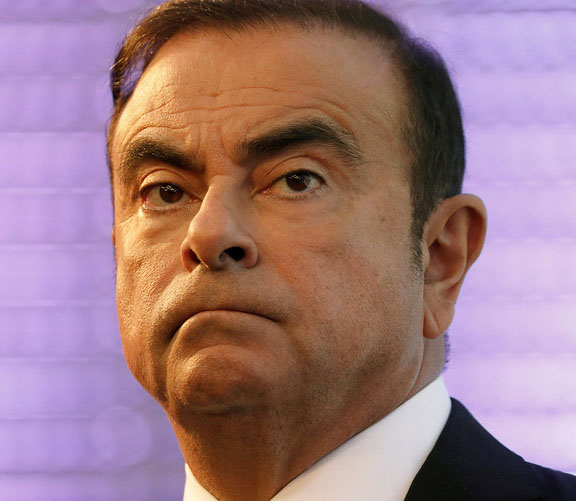PARIS/TOKYO, (Reuters) – Carlos Ghosn, the ousted boss of the Renault-Nissan carmaking alliance who was grounded in Japan while awaiting trial on charges of financial misconduct, was in Lebanon as of yesterday, a person close to Ghosn told Reuters.
The person, who declined to be identified, did not elaborate on how Ghosn reached Lebanon and said the former Nissan chairman – who is out on bail with conditions including handing his passport in to Japanese authorities – would issue a statement “soon”.
Neither Ghosn’s attorney nor a spokesman for the Tokyo prosecutors office had immediate comment. A Nissan spokesman declined to comment. A spokeswoman for the Lebanese embassy in Tokyo said, “We did not receive any information.”
Public broadcaster NHK on Tuesday said prosecutors and a member of Ghosn’s defence team were not aware of whether the former executive had left Japan and were seeking confirmation.
Japan does not have an extradition treaty with Lebanon, according to Japan’s justice ministry, making it unlikely that he could be forced to return to Tokyo to face trial.
Yesterday, French newspaper Les Echos cited an unidentified source and a report in Lebanese newspaper L’Orient-Le Jour saying Ghosn, who holds both French and Lebanese citizenship, was in Beirut.
It was unclear how Ghosn, 65, would have been able to leave Japan. His movement and communications have been monitored and restricted to prevent his fleeing the country and tampering with evidence, the Tokyo District court previously said.
The Financial Times on Monday said Ghosn was no longer under house arrest. Citing an associate of Ghosn, the British newspaper said the ex-executive landed at Beirut’s Rafic al-Hariri international airport late on Sunday.
The Wall Street Journal cited people familiar with the matter saying Ghosn had “fled” Japan and travelled to Lebanon via Turkey, arriving on Monday. One unidentified person told the newspaper Ghosn did not believe he would get a fair trial in Japan and was “tired of being an industrial political hostage”.
Ghosn is expected to hold a news conference in Lebanon in the coming days, the Journal reported.
Ghosn was arrested at a Tokyo airport shortly after his private jet touched down on Nov. 19, 2018. He faces four charges – which he denies – including hiding income and enriching himself through payments to dealerships in the Middle East.
Nissan sacked him as chairman saying internal investigations revealed misconduct ranging from understating his salary while he was its chief executive, and transferring $5 million of Nissan funds to an account in which he had an interest.
The case cast a harsh light on Japan’s criminal justice system, which allows suspects to be detained for long periods and prohibits defence lawyers from being present during interrogations that can last eight hours a day.
He was released from prison in March on a $9 million bail, among the highest-ever paid in Japan, after the court rejected an appeal by prosecutors to keep him in jail.
Ghosn has since said he is the victim of a boardroom coup, accusing former Nissan colleagues of “backstabbing” and describing them as selfish rivals bent on derailing a closer alliance between the Japanese automaker and its top shareholder Renault, of which Ghosn was also chairman. nL3N21R1J0]
His lawyers have asked the court to dismiss all charges, accusing prosecutors of colluding with government officials and Nissan executives to oust him to block any takeover of the automaker by Renault.
Brazilian-born of Lebanese descent and a French citizen, Ghosn began his career in 1978 at tyre maker Michelin. In 1996, he moved to Renault where he oversaw a turnaround at the automaker that won him the nickname “Le Cost Killer.”
After Renault sealed an alliance with Nissan in 1999, Ghosn used similar methods to revive the ailing brand, leading to business super-star status in Japan, blanket media coverage and even a manga comic book on his life.






